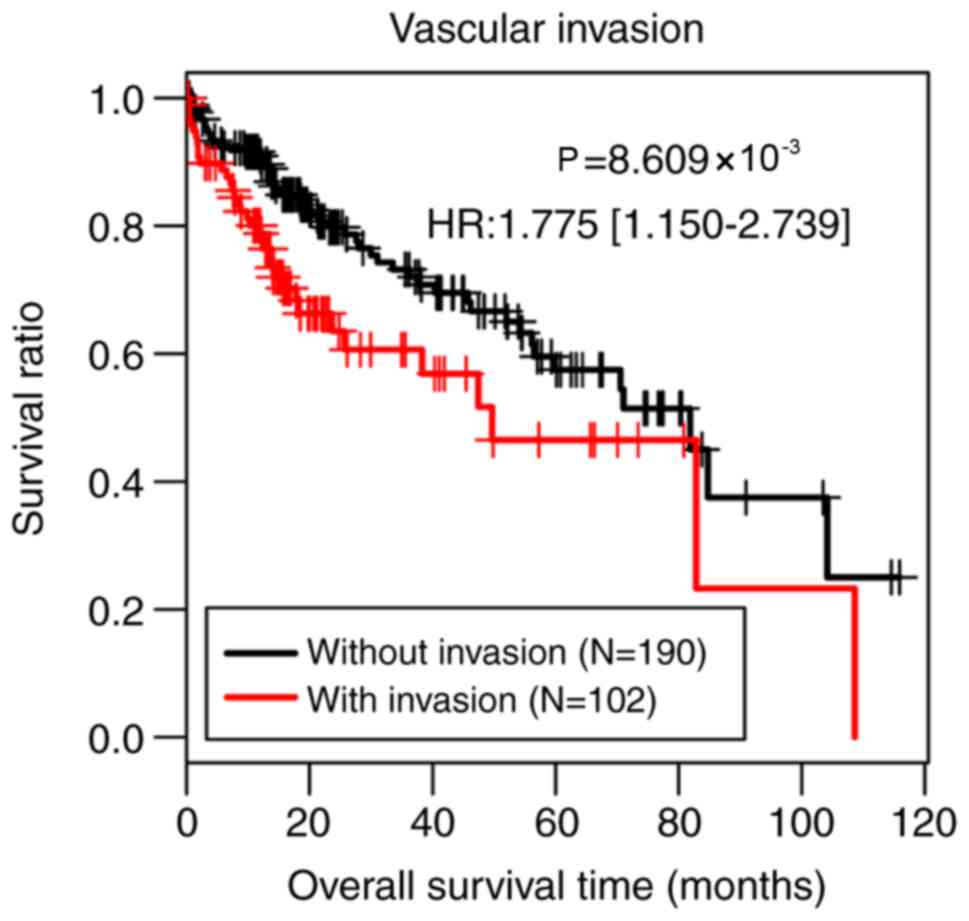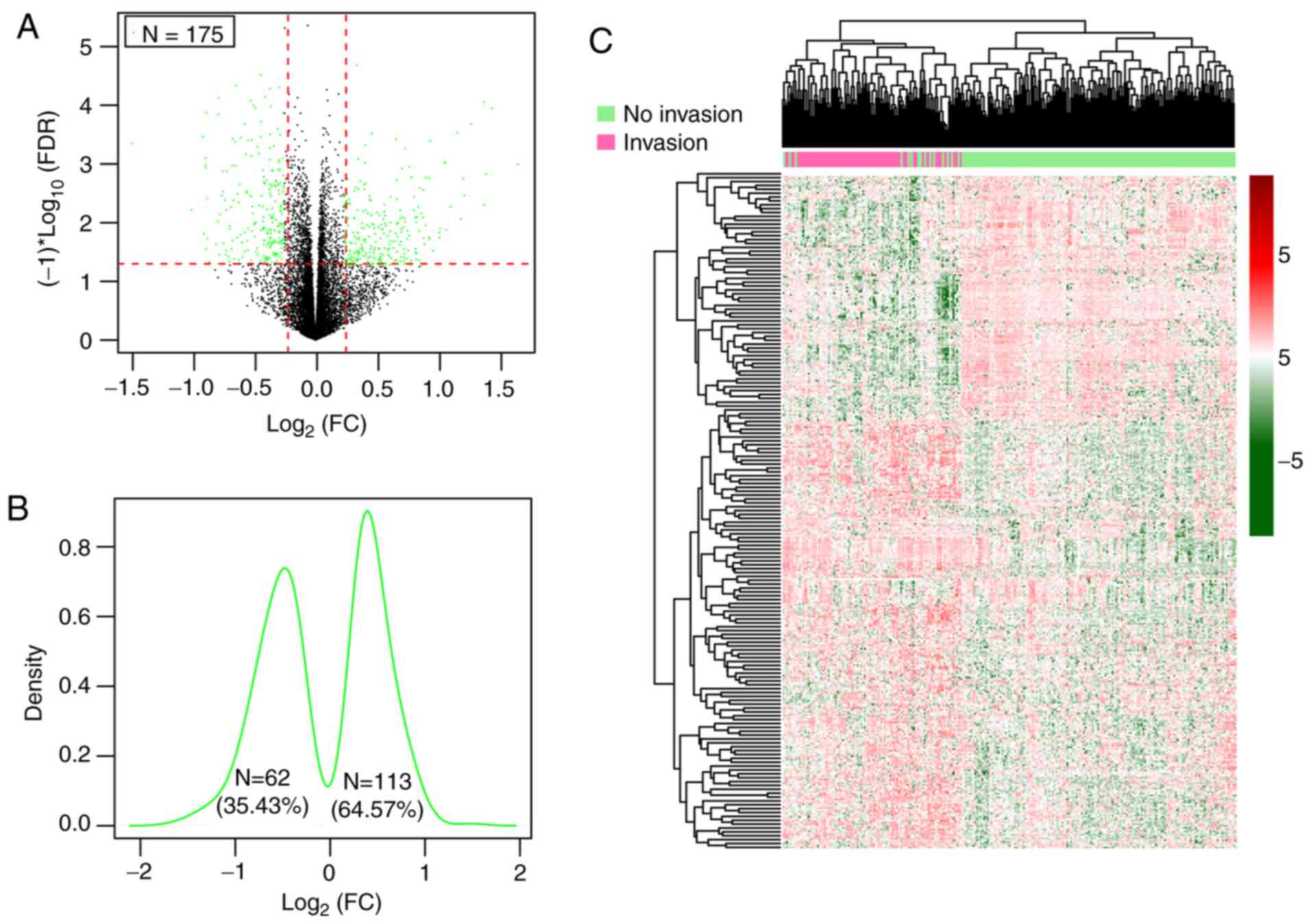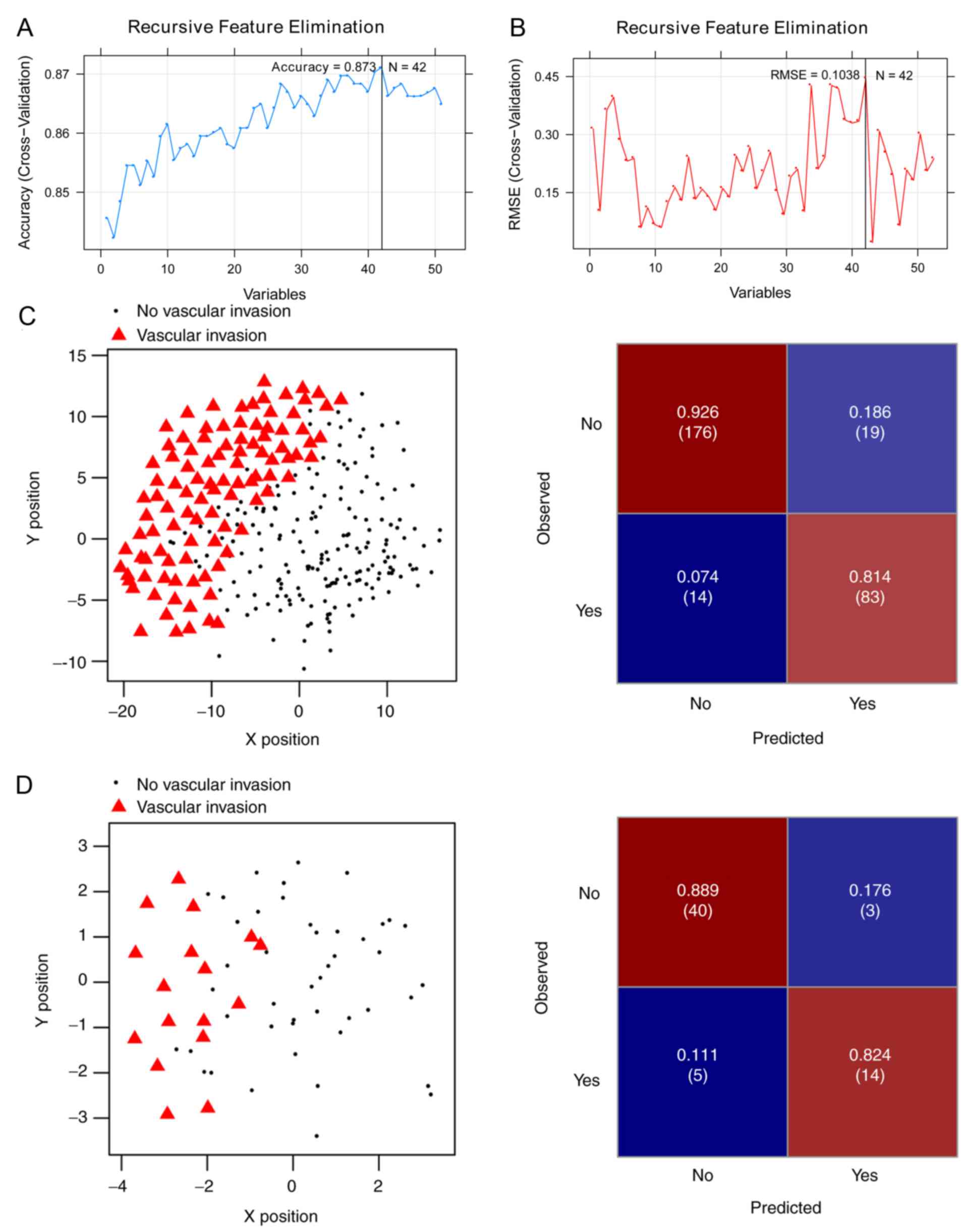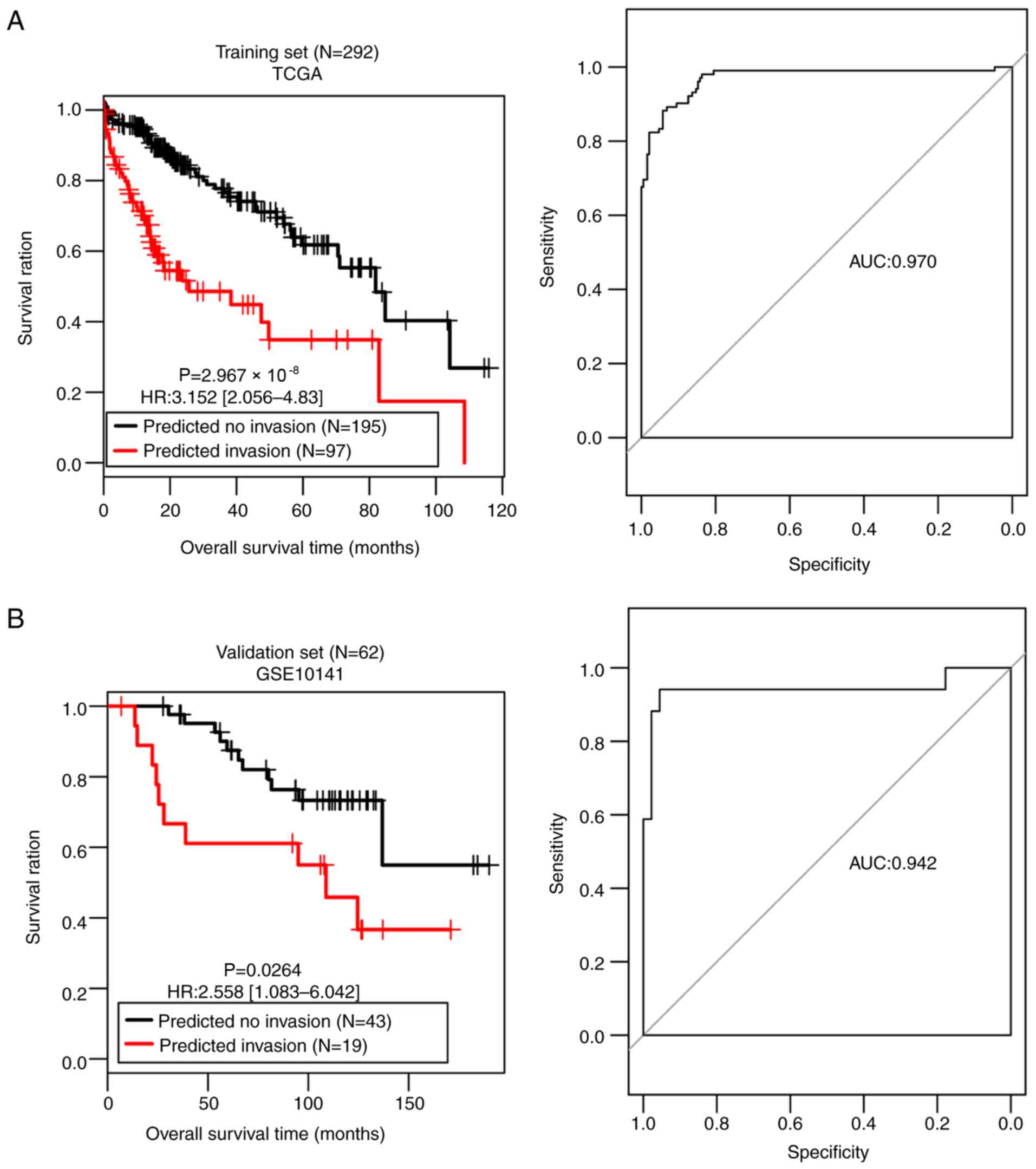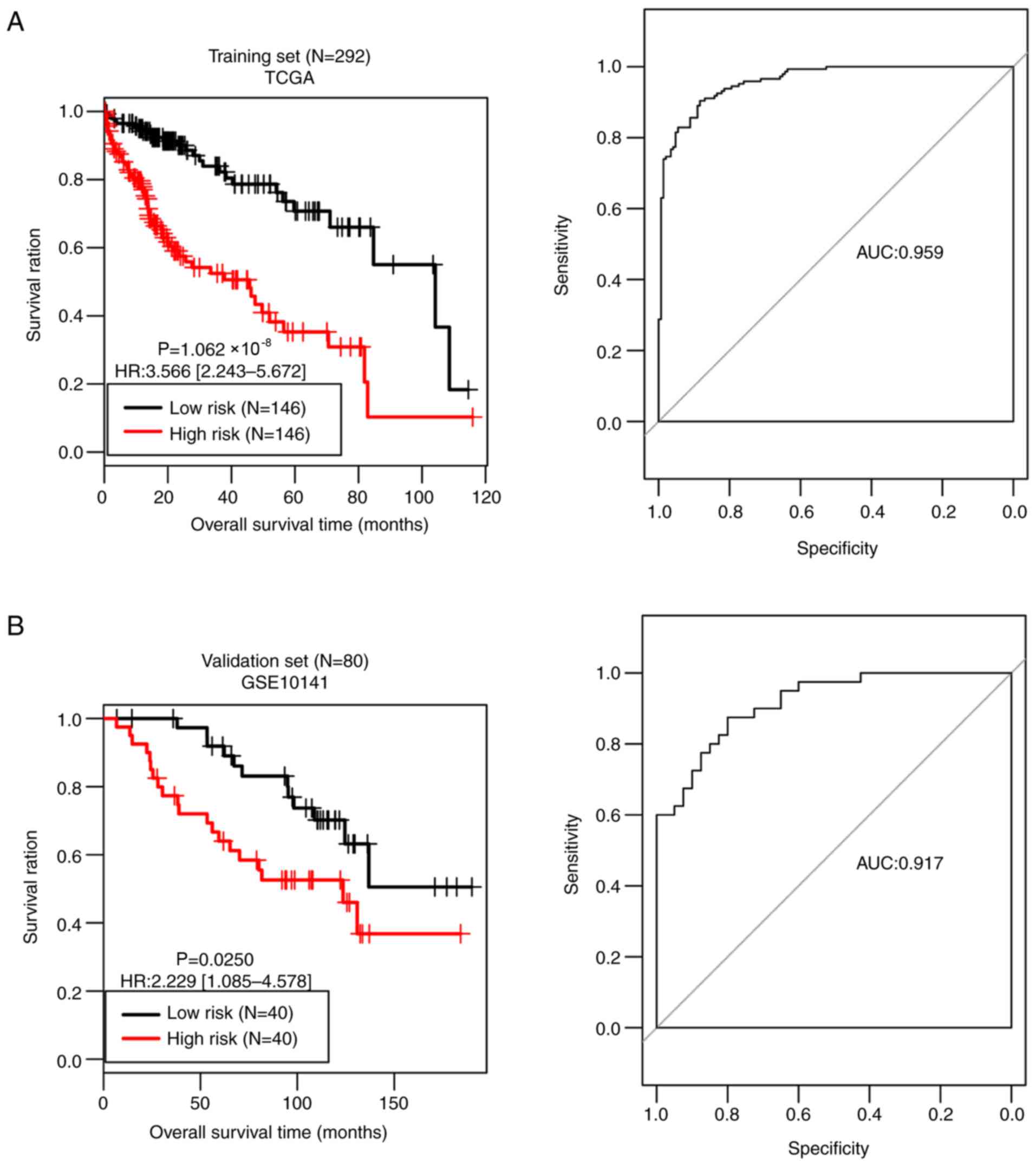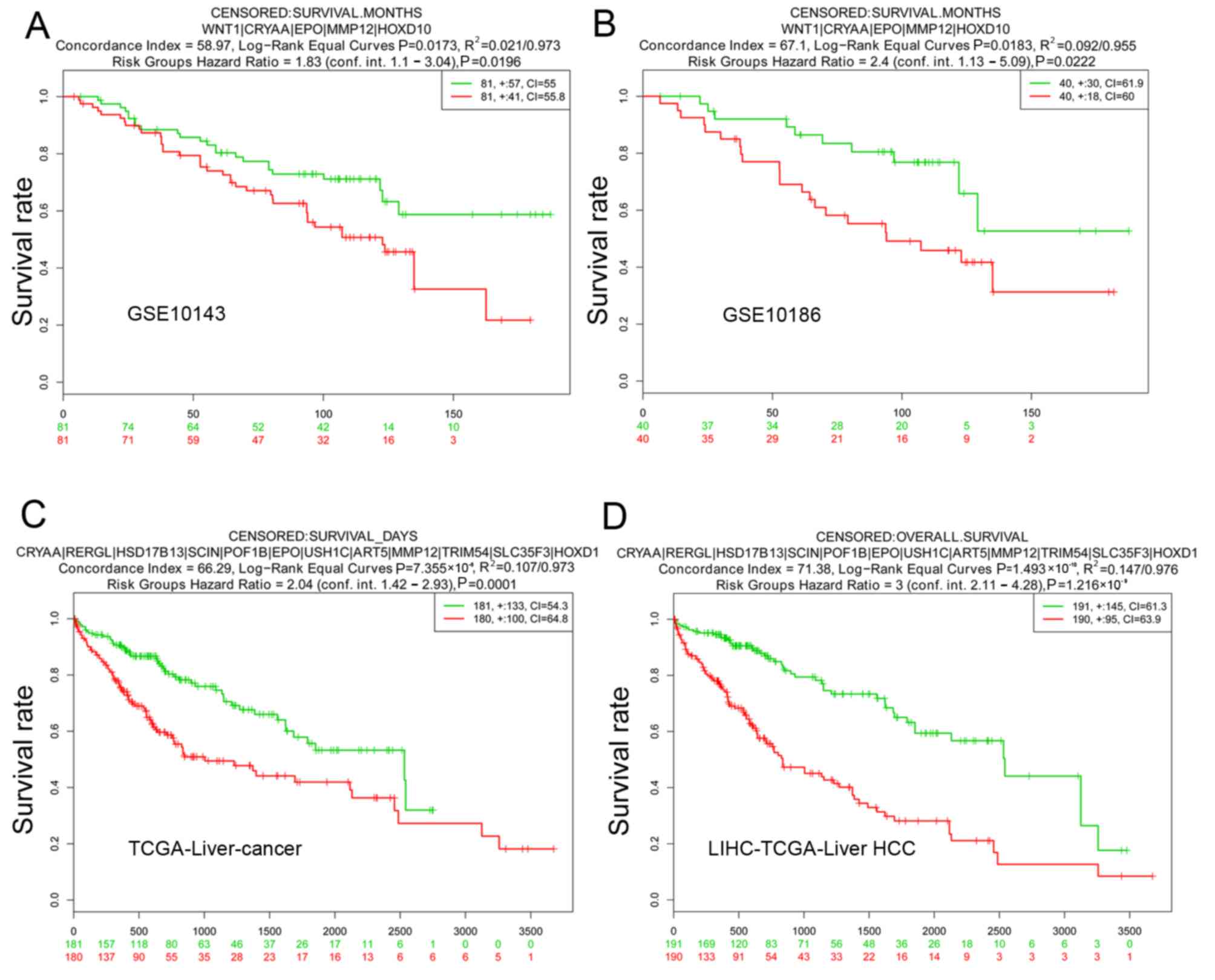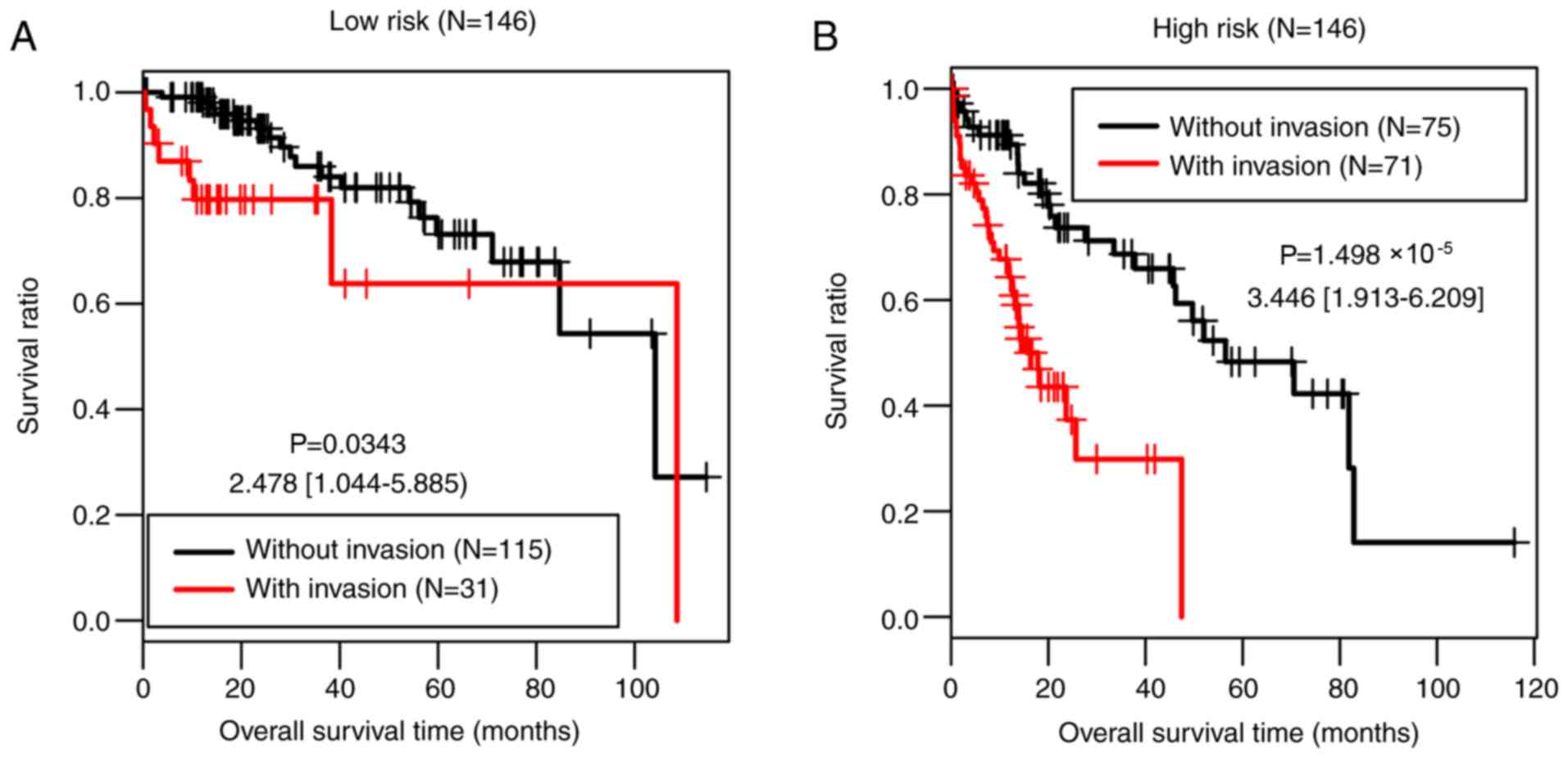|
1
|
Balogh J, Victor D III, Asham EH,
Burroughs SG, Boktour M, Saharia A, Li X, Ghobrial RM and Monsour
HP Jr: Hepatocellular carcinoma: A review. J Hepatocell Carcinoma.
3:41–53. 2016. View Article : Google Scholar : PubMed/NCBI
|
|
2
|
Bertuccio P, Turati F, Carioli G,
Rodriguez T, La Vecchia C, Malvezzi M and Negri E: Global trends
and predictions in hepatocellular carcinoma mortality. J Hepatol.
67:302–309. 2017. View Article : Google Scholar : PubMed/NCBI
|
|
3
|
Lo YC, Hsu FC, Hung SK, Tseng KC, Hsieh
YH, Lee MS, Tseng CW, Lin HY, Chen LC and Chiou WY: Prognosticators
of hepatocellular carcinoma with intrahepatic vascular invasion. Ci
Ji Yi Xue Za Zhi. 31:40–46. 2019.PubMed/NCBI
|
|
4
|
Pawlik TM, Poon RT, Abdalla EK, Zorzi D,
Ikai I, Curley SA, Nagorney DM, Belghiti J, Ng IO, Yamaoka Y, et
al: Critical appraisal of the clinical and pathologic predictors of
survival after resection of large hepatocellular carcinoma. Arch
Surg. 140:450–458. 2005. View Article : Google Scholar : PubMed/NCBI
|
|
5
|
Sakata J, Shirai Y, Wakai T, Kaneko K,
Nagahashi M and Hatakeyama K: Preoperative predictors of vascular
invasion in hepatocellular carcinoma. Eur J Surg Oncol. 34:900–905.
2008. View Article : Google Scholar : PubMed/NCBI
|
|
6
|
Hsieh CH, Wei CK, Yin WY, Chang CM, Tsai
SJ, Wang LY, Chiou WY, Lee MS, Lin HY and Hung SK: Vascular
invasion affects survival in early hepatocellular carcinoma. Mol
Clin Oncol. 3:252–256. 2015. View Article : Google Scholar : PubMed/NCBI
|
|
7
|
Hui Z, Chen C, Xu F, Yan X, Jia W, Mao L,
Jin H and Qiu Y: Prognostic value of a novel risk classification of
microvascular invasion in patients with hepatocellular carcinoma
after resection. Oncotarget. 8:5474–5486. 2016.
|
|
8
|
Ho MC, Lin JJ, Chen CN, Chen CC, Lee H,
Yang CY, Ni YH, Chang KJ, Hsu HC, Hsieh FJ and Lee PH: A gene
expression profile for vascular invasion can predict the recurrence
after resection of hepatocellular carcinoma: A microarray approach.
Ann Surg Oncol. 13:1474–1484. 2006. View Article : Google Scholar : PubMed/NCBI
|
|
9
|
Mínguez B, Hoshida Y, Villanueva A,
Toffanin S, Cabellos L, Thung S, Mandeli J, Sia D, April C, Fan JB,
et al: Gene-expression signature of vascular invasion in
hepatocellular carcinoma. J Hepatol. 55:1325–1331. 2011. View Article : Google Scholar : PubMed/NCBI
|
|
10
|
Lin Z, Cai YJ, Chen RC, Chen BC, Zhao L,
Xu SH, Wang XD, Song M, Wu JM, Wang YQ, et al: A microRNA
expression profile for vascular invasion can predict overall
survival in hepatocellular carcinoma. Clin Chim Acta. 469:171–179.
2017. View Article : Google Scholar : PubMed/NCBI
|
|
11
|
Ravishankar H, Madhavan R, Mullick R,
Shetty T, Marinelli L and Joel SE: Recursive feature elimination
for biomarker discovery in resting-state functional connectivity.
Conf Proc IEEE Eng Med Biol Soc. 2016:4071–4074. 2016.PubMed/NCBI
|
|
12
|
Hoshida Y, Villanueva A, Kobayashi M, Peix
J, Chiang DY, Camargo A, Gupta S, Moore J, Wrobel MJ, Lerner J, et
al: Gene expression in fixed tissues and outcome in hepatocellular
carcinoma. N Engl J Med. 359:1995–2004. 2008. View Article : Google Scholar : PubMed/NCBI
|
|
13
|
Wang P, Wang Y, Hang B, Zou X and Mao JH:
A novel gene expression-based prognostic scoring system to predict
survival in gastric cancer. Oncotarget. 7:55343–55351.
2016.PubMed/NCBI
|
|
14
|
Ritchie ME, Phipson B, Wu D, Hu Y, Law CW,
Shi W and Smyth GK: Limma powers differential expression analyses
for RNA-sequencing and microarray studies. Nucleic Acids Res.
43:e472015. View Article : Google Scholar : PubMed/NCBI
|
|
15
|
Eisen MB, Spellman PT, Brown PO and
Botstein D: Cluster analysis and display of genome-wide expression
patterns. Proc Natl Acad Sci USA. 95:14863–14868. 1998. View Article : Google Scholar : PubMed/NCBI
|
|
16
|
Wang L, Cao C, Ma Q, Zeng Q, Wang H, Cheng
Z, Zhu G, Qi J, Ma H, Nian H and Wang Y: RNA-seq analyses of
multiple meristems of soybean: Novel and alternative transcripts,
evolutionary and functional implications. BMC Plant Biol.
14:1692014. View Article : Google Scholar : PubMed/NCBI
|
|
17
|
Lu X, Yang Y, Wu F, Gao M, Xu Y, Zhang Y,
Yao Y, Du X, Li C, Wu L, et al: Discriminative analysis of
schizophrenia using support vector machine and recursive feature
elimination on structural MRI images. Medicine (Baltimore).
95:e39732016. View Article : Google Scholar : PubMed/NCBI
|
|
18
|
Deist TM, Dankers FJMM, Valdes G, Wijsman
R, Hsu IC, Oberije C, Lustberg T, van Soest J, Hoebers F, Jochems
A, et al: Machine learning algorithms for outcome prediction in
(chemo)radiotherapy: An empirical comparison of classifiers. Med
Phys. 45:3449–3459. 2018. View
Article : Google Scholar : PubMed/NCBI
|
|
19
|
Wang Q and Liu X: Screening of feature
genes in distinguishing different types of breast cancer using
support vector machine. Onco Targets Ther. 8:2311–2317.
2015.PubMed/NCBI
|
|
20
|
Mayr A and Schmid M: Boosting the
concordance index for survival data-a unified framework to derive
and evaluate biomarker combinations. PLoS One. 9:e844832014.
View Article : Google Scholar : PubMed/NCBI
|
|
21
|
Zhang X, Li Y, Akinyemiju T, Ojesina AI,
Buckhaults P, Liu N, Xu B and Yi N: Pathway-structured predictive
model for cancer survival prediction: A two-stage approach.
Genetics. 205:89–100. 2017. View Article : Google Scholar : PubMed/NCBI
|
|
22
|
Schroder MS, Culhane AC, Quackenbush J and
Haibe-Kains B: Survcomp: An R/Bioconductor package for performance
assessment and comparison of survival models. Bioinformatics.
27:3206–3208. 2011. View Article : Google Scholar : PubMed/NCBI
|
|
23
|
Robin X, Turck N, Hainard A, Tiberti N,
Lisacek F, Sanchez JC and Müller M: pROC: An open-source package
for R and S+ to analyze and compare ROC curves. BMC Bioinformatics.
12:772011. View Article : Google Scholar : PubMed/NCBI
|
|
24
|
Tibshirani R: The lasso method for
variable selection in the Cox model. Stat Med. 16:385–395. 1997.
View Article : Google Scholar : PubMed/NCBI
|
|
25
|
Aguirre-Gamboa R, Gomez-Rueda H,
Martinez-Ledesma E, Martínez-Torteya A, Chacolla-Huaringa R,
Rodriguez- Barrientos A, Tamez-Peña JG and Treviño V: SurvExpress:
An online biomarker validation tool and database for cancer gene
expression data using survival analysis. PLoS One. 8:e742502013.
View Article : Google Scholar : PubMed/NCBI
|
|
26
|
Hoshida Y, Nijman SM, Kobayashi M, Chan
JA, Brunet JP, Chiang DY, Villanueva A, Newell P, Ikeda K,
Hashimoto M, et al: Integrative transcriptome analysis reveals
common molecular subclasses of human hepatocellular carcinoma.
Cancer Res. 69:7385–7392. 2009. View Article : Google Scholar : PubMed/NCBI
|
|
27
|
Subramanian A, Tamayo P, Mootha VK,
Mukherjee S, Ebert BL, Gillette MA, Paulovich A, Pomeroy SL, Golub
TR, Lander ES and Mesirov JP: Gene set enrichment analysis: A
knowledge-based approach for interpreting genome-wide expression
profiles. Proc Natl Acad Sci USA. 102:15545–15550. 2005. View Article : Google Scholar : PubMed/NCBI
|
|
28
|
Varotti G, Ramacciato G, Ercolani G, Grazi
GL, Vetrone G, Cescon M, Del Gaudio M, Ravaioli M, Ziparo V, Lauro
A and Pinna A: Comparison between the fifth and sixth editions of
the AJCC/UICC TNM staging systems for hepatocellular carcinoma:
Multicentric study on 393 cirrhotic resected patients. Eur J Surg
Oncol. 31:760–767. 2005. View Article : Google Scholar : PubMed/NCBI
|
|
29
|
Singal AG and El-Serag HB: Hepatocellular
carcinoma from epidemiology to prevention: Translating knowledge
into practice. Clin Gastroenterol Hepatol. 13:2140–2151. 2015.
View Article : Google Scholar : PubMed/NCBI
|
|
30
|
Kasai Y, Hatano E, Seo S, Taura K,
Yasuchika K and Uemoto S: Hepatocellular carcinoma with bile duct
tumor thrombus: Surgical outcomes and the prognostic impact of
concomitant major vascular invasion. World J Surg. 39:1485–1493.
2015. View Article : Google Scholar : PubMed/NCBI
|
|
31
|
Ahsani Z, Mohammadi-Yeganeh S, Kia V,
Karimkhanloo H, Zarghami N and Paryan M: WNT1 Gene from WNT
signaling pathway is a direct target of miR-122 in hepatocellular
carcinoma. Appl Biochem Biotechnol. 181:884–897. 2017. View Article : Google Scholar : PubMed/NCBI
|
|
32
|
Goitre L, Trapani E, Trabalzini L and
Retta SF: The Ras superfamily of small GTPases: The unlocked
secrets. Methods Mol Biol. 1120:1–18. 2014. View Article : Google Scholar : PubMed/NCBI
|
|
33
|
Xing X, Huang Y, Wang S, Chi M, Zeng Y,
Chen L, Li L, Zeng J, Lin M, Han X, et al: Dataset for the
quantitative proteomics analysis of the primary hepatocellular
carcinoma with single and multiple lesions. Data Brief. 5:226–240.
2015. View Article : Google Scholar : PubMed/NCBI
|
|
34
|
Chen J, Zhuo JY, Yang F, Liu ZK, Zhou L,
Xie HY, Xu X and Zheng SS: 17-beta-hydroxysteroid dehydrogenase 13
inhibits the progression and recurrence of hepatocellular
carcinoma. Hepatobiliary Pancreat Dis Int. 17:220–226. 2018.
View Article : Google Scholar : PubMed/NCBI
|
|
35
|
Su W, Mao Z, Liu Y, Zhang X, Zhang W,
Gustafsson JA and Guan Y: Role of HSD17B13 in the liver physiology
and pathophysiology. Mol Cell Endocrinol. 489:119–125. 2019.
View Article : Google Scholar : PubMed/NCBI
|
|
36
|
Qiao X, Zhou Y, Xie W, Wang Y, Zhang Y,
Tian T, Dou J, Yang X, Shen S, Hu J, et al: Scinderin is a novel
transcriptional target of BRMS1 involved in regulation of
hepatocellular carcinoma cell apoptosis. Am J Cancer Res.
8:1008–1018. 2018.PubMed/NCBI
|
|
37
|
Ribatti D, Marzullo A, Gentile A, Longo V,
Nico B, Vacca A and Dammacco F:
Erythropoietin/erythropoietin-receptor system is involved in
angiogenesis in human hepatocellular carcinoma. Histopathology.
50:591–596. 2007. View Article : Google Scholar : PubMed/NCBI
|
|
38
|
Yang Z, Sun B, Zhao X, Shao B, An J, Gu Q,
Wang Y, Dong X, Zhang Y and Qiu Z: Erythropoietin and
erythropoietin receptor in hepatocellular carcinoma: Correlation
with vasculogenic mimicry and poor prognosis. Int J Clin Exp
Pathol. 8:4033–4043. 2015.PubMed/NCBI
|
|
39
|
Miao S, Wang SM, Cheng X, Li YF, Zhang QS,
Li G, He SQ, Chen XP and Wu P: Erythropoietin promoted the
proliferation of hepatocellular carcinoma through hypoxia induced
translocation of its specific receptor. Cancer Cell Int.
17:1192017. View Article : Google Scholar : PubMed/NCBI
|
|
40
|
Ng KT, Qi X, Kong KL, Cheung BY, Lo CM,
Poon RT, Fan ST and Man K: Overexpression of matrix
metalloproteinase-12 (MMP-12) correlates with poor prognosis of
hepatocellular carcinoma. Eur J Cancer. 47:2299–2305. 2011.
View Article : Google Scholar : PubMed/NCBI
|
|
41
|
He MK, Le Y, Zhang YF, Ouyang HY, Jian PE,
Yu ZS, Wang LJ and Shi M: Matrix metalloproteinase 12 expression is
associated with tumor FOXP3+ regulatory T cell
infiltration and poor prognosis in hepatocellular carcinoma. Oncol
Lett. 16:475–482. 2018.PubMed/NCBI
|
|
42
|
Cambiaghi V, Giuliani V, Lombardi S,
Marinelli C, Toffalorio F and Pelicci PG: TRIM proteins in cancer.
Adv Exp Med Biol. 770:77–91. 2012. View Article : Google Scholar : PubMed/NCBI
|
|
43
|
Guo Y, Peng Y, Gao D, Zhang M, Yang W,
Linghu E, Herman JG, Fuks F, Dong G and Guo M: Silencing HOXD10 by
promoter region hypermethylation activates ERK signaling in
hepatocellular carcinoma. Clin Epigenetics. 9:1162017. View Article : Google Scholar : PubMed/NCBI
|
|
44
|
Ho DW, Kai AK and Ng IO: TCGA
whole-transcriptome sequencing data reveals significantly
dysregulated genes and signaling pathways in hepatocellular
carcinoma. Front Med. 9:322–330. 2015. View Article : Google Scholar : PubMed/NCBI
|
|
45
|
Shirakami Y, Sakai H and Shimizu M:
Retinoid roles in blocking hepatocellular carcinoma. Hepatobiliary
Surg Nutr. 4:222–228. 2015.PubMed/NCBI
|
|
46
|
Yan T, Lu L, Xie C, Chen J, Peng X, Zhu L,
Wang Y, Li Q, Shi J, Zhou F, et al: Severely impaired and
dysregulated cytochrome P450 expression and activities in
hepatocellular carcinoma: Implications for personalized treatment
in patients. Mol Cancer Ther. 14:2874–2886. 2015. View Article : Google Scholar : PubMed/NCBI
|
|
47
|
Fanale D, Amodeo V and Caruso S: The
interplay between metabolism, PPAR signaling pathway, and cancer.
PPAR Res. 2017:18306262017. View Article : Google Scholar : PubMed/NCBI
|















